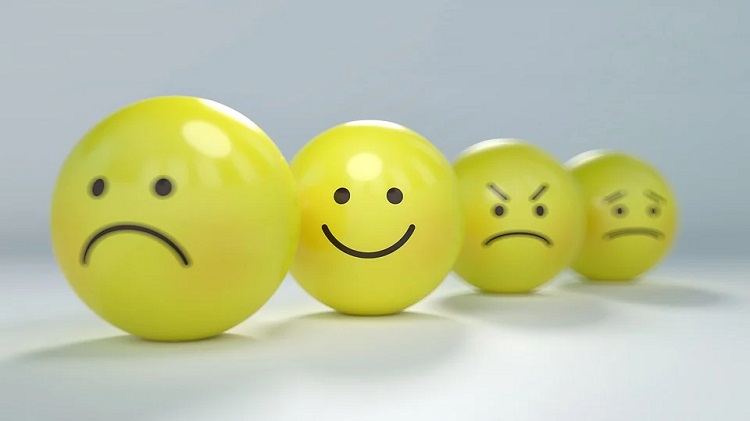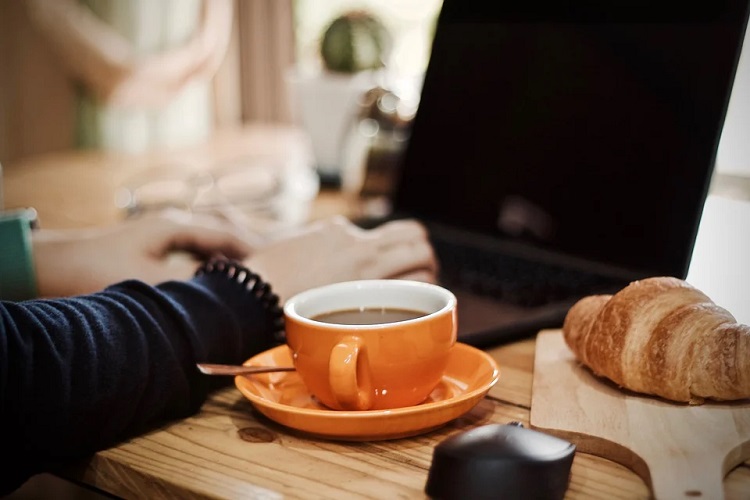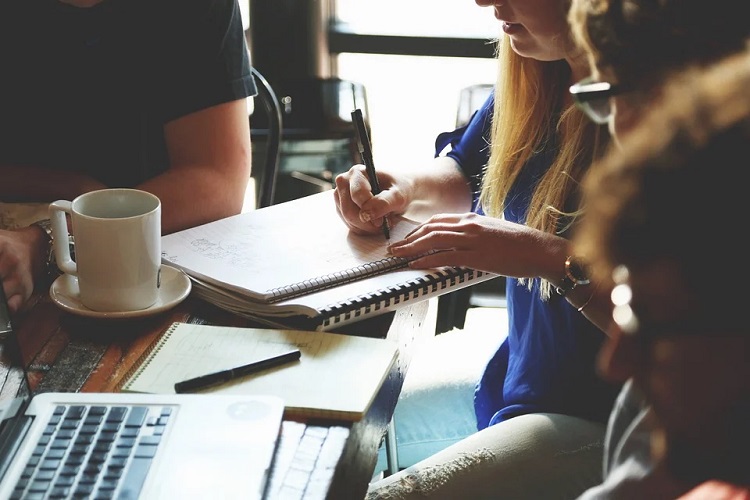Emotional health, well-being, welfare, state of mind, psychological state – we use many phrases to describe mental health, and it’s becoming increasingly common to discuss mental health openly. The recent lockdown has robbed us of many things, including at NRI, regular face-to-face interaction with our colleagues and the opportunity to pick up on clues that someone’s mental health might be suffering.
NRI is a very special place to work and for many of us – especially those from overseas – colleagues sometimes become more like family.
10th October is World Mental Health Day, which aims to raise awareness of mental health issues around the world and mobilise efforts in support of mental health. This year’s theme is ‘Mental Health for All: Greater Investment – Greater Access’.
I spoke to four members of NRI staff and asked them for a personal view on how they perceive mental health, and how lockdown has affected them and their colleagues.
The Mental Health Champion – Claire Hopson
“As a mental health champion I try to set a good example by investing in my own mental health.
In the past six months there have been times when I have struggled to be my usual buoyant self. Facing a lockdown alone and being completely socially isolated for months, was particularly hard to cope with at times.
However, it also taught me to appreciate and fully enjoy the things that I could; my garden, the beautiful weather, my cats, chatting to friends and family even if I could not see them in person. I reached out to a neighbour across the street, someone I’d not even spoken to before, and I ‘met’ colleagues for a virtual cuppa. These were great compensations for some of the sacrifices that had to be made.
Throughout the years I have found it useful to try and take a step back and think objectively about my own thoughts, feelings and reactions. What do I struggle with? Why do I struggle with this? Has something similar in the past happened before and how did I react and deal with this? Was the outcome good or bad or middling and why? Who can I talk to about this? Who can lend me support or help with this?
Doing this helps me to understand myself and learn what I can cope with and what I will find difficult, and what tools I can then put in place to help me get through hard times. I’m not saying I’ve mastered this by any means – it will always be a work in progress – and sometimes the lightbulb moment comes only part-way through the situation or even after the event, but life is all about learning, right?
The other great skill to invest in for our mental health and one that definitely can be learnt, is that of conscious positivity. We all know the old saying about seeing the glass half full or half empty –beer, wine, tea – pick your favourite tipple! There will always be ups and downs in life and to be able to see and appreciate what we still have can be of great help.
As a teenager, whenever a negative thought came into my head, I would consciously flip it around. It is still something I try to do whenever I can, if I catch myself having a bit of a grumble in my own little head space, that ray of sunshine comes out and gives it a good dressing down or points out the positive.
It’s still ok to feel fed up with things of course, as long as we take the time to change the parts of life that are causing us dissatisfaction, though it may take us some time to get there naturally. Whenever I chat with a particular good friend, we conclude our discussions by saying, ‘life is all about perspective, changing your view-point on it can change what you see.’”
The Professional Services Staff member – Caroline Troy
 “Lockdown has been very challenging for me, however it has given me a new perspective on my mental health. 2020 began as a terrific year; in January I travelled to Colombia for a series of project meetings, and I had an extensive holiday to Australia planned for September. I began the year full of energy and raring to go.
“Lockdown has been very challenging for me, however it has given me a new perspective on my mental health. 2020 began as a terrific year; in January I travelled to Colombia for a series of project meetings, and I had an extensive holiday to Australia planned for September. I began the year full of energy and raring to go.
When lockdown became inevitable, I genuinely believed it would be over swiftly and we would return to some sort of normal – I now realise that was a little naïve of me. My last day in the office was my birthday and it was a strange day. I was one of the last people to leave the building and remember everyone loading up their cars with stationery, monitors, even office chairs.
I am a self-confessed workaholic, therefore to suddenly not have a normal daily routine completely threw me. The first seven days were great. It was different to be at home all the time, however after the initial novelty wore off, I began to think lockdown was not going to be as easy as I’d first thought. Being somebody who had a very structured daily routine, having colleagues around me improved my productivity, so to suddenly be alone, I realised very quickly, my lockdown experience was not going to be so easy.
There would be days when I was completely unproductive, and I would beat myself up for how little I achieved. My internal narrative became very negative and the unproductive days really began to affect my mental health.
My father died suddenly in 2018, and I hadn’t really dealt with his passing, instead throwing myself into work to cope. All of a sudden, I was sitting at home all day surrounded by his photos and memorabilia – and I was forced to begin to confront my feelings. Unresolved grief, in addition to all the feelings lockdown had thrown up – well, it became overwhelming.
As the weeks went on, I also became a repository for other’s problems and at times it became too much on top of coping with my own mental wellbeing.
I began to feel ineffective at my job, I lost my confidence and I had days when I just didn’t want to get out of bed; there seemed little point. I didn’t want to speak to anybody or do anything. It felt as though there was no escape so I had to learn a few hard facts: the first was if I had an unproductive day it wasn’t the end of the world, I could write it off and start again the following day. The second was that the people you assume will be there as a support for you – often are not – and other incredibly fabulous people suddenly and unexpectedly really step up. Lastly, I learnt I am not as resilient as I thought.
What pulled me through those darker times was regular chats with a few of the most amazing colleagues who would check in with me, often randomly, and provide a lot of support and perspective. My previous manager checked in with me, providing another much-needed pressure release valve. In addition, I contacted NRI’s mental health rep, Clare Hopson, and we met for a virtual coffee and a chat on a regular basis. She was beyond amazing!
So, what have I learnt from lockdown? It taught me that change is scary, however I can adapt. Lockdown for me has been a period of self-reflection and taught me the importance of both routine and work/life balance. It gave me a chance to catch my breath, but it also allowed me to stop, inhale and breathe out everything I was holding in.
The pandemic has also made me view mental health differently. I have always considered myself a resilient person, unaffected by mental health issues, however lockdown has forced me to prioritise my mental health which can only be a positive thing going forward.”
The Line Manager – Mark Parnell
“In ‘normal’ times, I see one of my primary functions as a manager, to regularly check up on people’s wellbeing and notice the small things. All the staff I line manage tend to have a work programme which they are great at getting on  with, so I don’t need to worry too much about setting them specific tasks.
with, so I don’t need to worry too much about setting them specific tasks.
If I feel that someone is unhappy or slightly disgruntled then I’ll ask them if they want to set aside a specific time to talk about it and of course we have an annual appraisal system which is always a good opportunity to speak one’s mind or to ask for help.
In the office I’m a great fan of just walking around the corridors and popping into offices and observing and chatting, to gauge how the team is doing. You can often notice a lot just chatting while waiting for the kettle to boil!
During lockdown I had to make a conscious effort to schedule in regular virtual meetings, not only to communicate with my team, but to listen.The casual day-to-day interaction that we all took for granted had disappeared.
NRI as an organisation provides plenty of room for looking after people’s mental health and speaking up is actively encouraged, but putting it into action and managing the process is very much down to individual line managers and heads of department. Stress management is very much a topic up for discussion and there are numerous meetings in which stress management is discussed at length.
When we talk openly about mental health issues, it sort of drains the power from it. Mental health problems are way stronger when they’re kept locked away; by normalising the fact that we all have struggles from time to time brings it on a par with physical health, which is exactly as it should be.
If you broke your leg you wouldn’t hide away, feeling embarrassed, wishing it was fixed, you’d tell someone and seek medical help. The same is true with mental health ‘injuries’; telling someone and then seeking further help if needed, is incredibly important.”
The Director – Andrew Westby
 "As Director of NRI – with over 130 members of staff and over 100 students from around the world, many of whom have left their home countries and families to come to study and work at NRI in what is often a very fast-paced and demanding environment – I am constantly aware that good mental health, and wellbeing in general, is incredibly important to us all.
"As Director of NRI – with over 130 members of staff and over 100 students from around the world, many of whom have left their home countries and families to come to study and work at NRI in what is often a very fast-paced and demanding environment – I am constantly aware that good mental health, and wellbeing in general, is incredibly important to us all.
With the added stress and uncertainties of COVID and lockdown, many people in the NRI community have experienced mental health issues, and some have suffered extreme loss and trauma. All NRI departments and student groups have regular online meetings in order to check in with everyone – and my virtual door is always open.
This year, the University of Greenwich’s VC, Prof Jane Harrington, has consistently highlighted the importance of mental health and taking care of each other.
In order to ease the stress a little, and to bring our community together, towards the beginning of lockdown I organised a number of virtual ‘pub quizzes’ – online team quizzes where our staff and their families formed teams in order to answer the sometimes baffling and entertaining questions we posed. It was fun to organize the events, and I’m very fortunate that my family rallied round to help!
As lockdown was lifted with the onset of summer and the longer nights, we paused the quizzes – also as many people were probably starting to feel a bit of ‘Zoom fatigue’. However, as the restrictions continue, with no clear end in sight, it seems the time has come to resume our online get-togethers – for the NRI teams to compete for amazing prizes and to get together once more.
I feel that, as an Institute, we can do more to look out for people’s mental health – the annual appraisal process is a time to check in on the people we line manage, but I would like to encourage everyone to approach their line managers, supervisors, senior management team and/or colleagues if they have any issues at any time. I am very grateful that many members of staff and students including NRIPS, have steadfastly supported each other during these challenging times.
Our Mental Health Champion, Clare Hopson, has been doing a great job – thank you Clare! As a reminder to us all, Clare has set up a Mental Health and Wellbeing Team in Teams, with useful links to resources.
In addition, the University has a Wellbeing hub and through the Portal all staff can access Confidential Care, an independent, free and completely confidential advice service, run by CiC, which is available to you and your family members. For students, the Big White Wall, now called Togetherall offers a safe place to talk, share and access support, and it's free for students when registering with their university email address."

